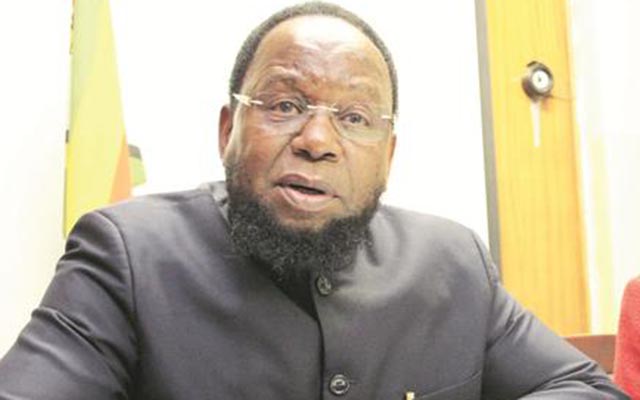School feeding scheme to stay

Herald Reporter
Government has adopted the ongoing school feeding programme as a policy that will be implemented not only in drought years even when the country enjoys bumper harvests, Primary and Secondary Education Minister Lazarus Dokora has said.
Addressing delegates at Matenda Primary School in Zvishavane recently while commissioning the Water Source Development project, Dr Dokora said the programme had a positive impact in reducing the number of school dropouts, improved gender equity, as well as poverty and hunger reduction.
The Water Source Development project, which was made possible by the World Food Programme and its implementing partner the Adventist Development and Relief Agency Zimbabwe, witnessed 11 boreholes being drilled for schools in the district, as well as fencing materials provided for nutritional gardens.
“If stalked by hunger, or unbalanced diets, the impact is negative as it leads to poor performance,” said Dr Dokora. “Food support for learners becomes a strategic investment that can make a difference in the future of all Zimbabwean learners and consequently the contribution they can make to their country.
“I, therefore, wish to count the boreholes drilled and nutritional gardens that I am launching today as one of the ‘quick wins’ for my ministry as we walk the talk of the Home Grown School Feeding Dispensation.
“Let us take the investments in school feeding and work together to coordinate and achieve meaningful results.”
Dr Dokora said the project was timely as “agriculture is one of the learning areas under the new curriculum framework (2015-2022), while nutrition and health education are emphasised as cross-cutting concerns at all levels of the education system”.
He said education remained the undisputed key enabler for human development and the cornerstone of the Zimbabwean socio-economic transformation since the attainment of independence in 1980.
Zvishavane has 24 000 primary school- going children and 10 400 secondary school children.
Ten other schools, namely Mapedza, Gwemombe Dip, Gwemombe Langwani, Zungwi, Makovere, Woodlands, Fishu, Venge, Shiku and Tom Chibi also benefitted from the donation of boreholes and fencing materials.
Speaking at the same event, WFP country director Mr Eddie Rowe said WFP, in collaboration with partners, will continue to support the schools meals initiative, as well as promote access to clean and safe water.
“Our work continues to extend beyond the immediate needs and direct implementation as we support the Government in its scale-up of school meals programmes in the country,” he said.
“Our vision is to support Government to develop and sustain programmes that help children not just to survive, but to learn and thrive.”









Comments